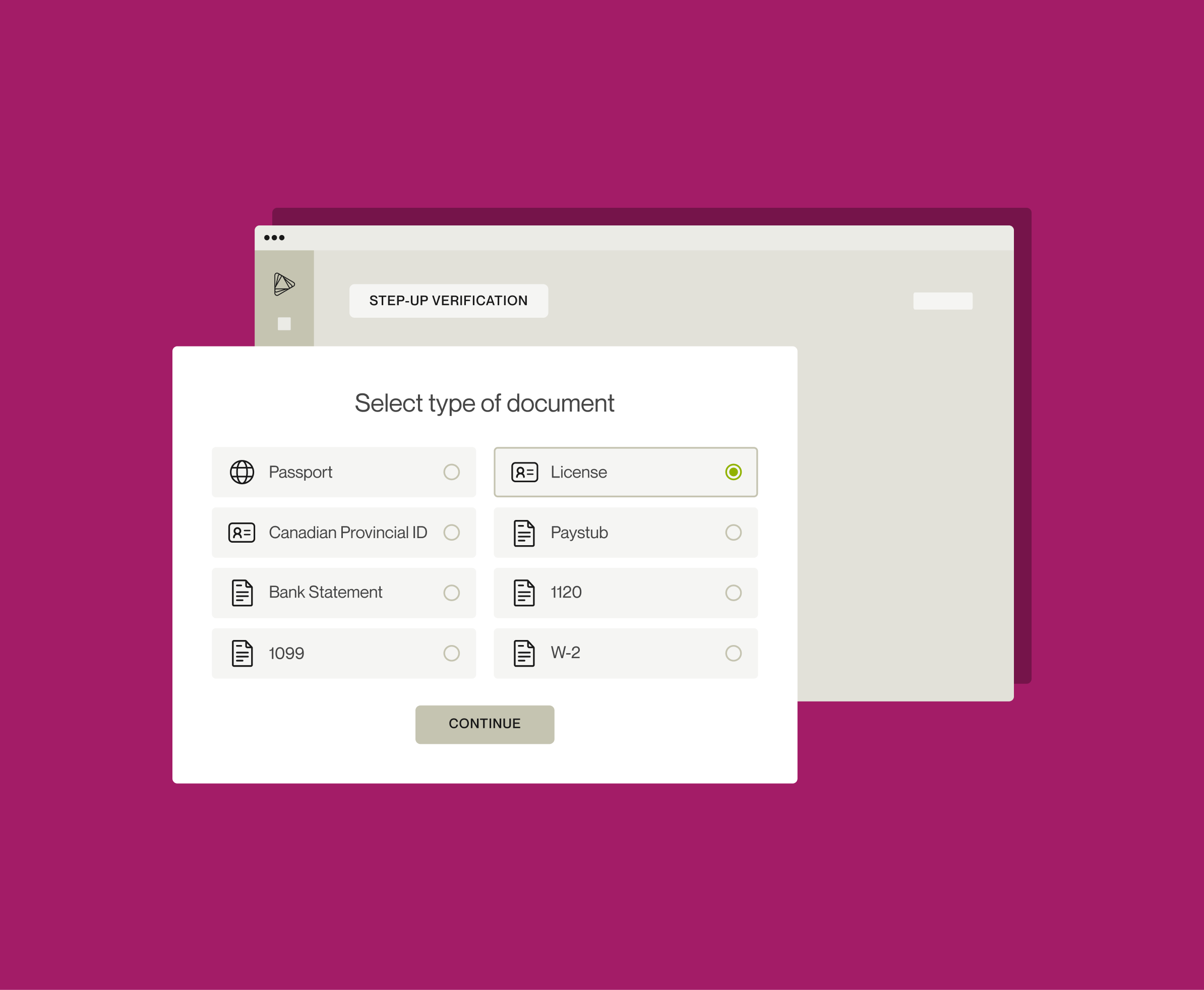Share
Alloy’s SDK powers the future of step-up verification
Oct 24, 2022

Integrating new step-up verification vendors into the onboarding journey is a challenge for fraud prevention teams at banks, fintechs, and credit unions. That’s because using more than one step-up verification vendor creates a disjointed user interface (UI) that adversely affects the user experience. On the other hand, building a custom solution to manage multiple step-up verification vendors slows changes, leaving the team vulnerable to severe losses. Meanwhile, improvements to home-built step-up verification solutions can come at a high engineering cost, diverting resources from activities that generate revenue.
Meet Alloy's codeless SDK solution
Alloy’s software development kit (SDK) offers a codeless solution for customer onboarding and multi-vendor management. With Alloy's SDK, you can add or change step-up vendors easily by selecting their names from the drop-down menu in the dashboard. This allows you to integrate once and iterate endlessly without the need for additional engineering resources.
Efficiency, flexibility, and a better user experience
With Alloy, fraud prevention teams can operate a wide variety of identity solutions including document verification, phone-based identity verification, device risk, and behavioral risk. You can access numerous identity verification providers, like the following, from one platform when you use Alloy:
- Socure combines online and offline intelligence from email, phone, address, IP, device, velocity, and internet data to verify identities.
- TruValidate by TransUnion leverages identity, device, and behavioral insights to help organizations interact with real consumers while mitigating fraud risk.
- Veriff is an AI-powered global identity verification service for fraud prevention and compliance
- Onfido is a flexible end-to-end digital identity verification platform that meets global KYC and AML standards.
- Prove is a device risk platform for phone-centric identity verification and authentication.
- NeuroID uses device and network intelligence to gather behavioral analytics that put a stop to every kind of third-party fraud.
With Alloy’s SDK, these and other vendor plugins share a unified UI, resulting in a more efficient, flexible, and actionable fraud mitigation experience.
Traditionally, any attempt to streamline fraud prevention UIs added a layer of complexity and management headaches for fraud prevention teams. This approach also caused display inconsistencies that negatively impacted the overall fraud risk management experience. Alloy's SDK gives fraud prevention teams a clean and consistent user experience across all vendors in their onboarding journey. Fraud prevention teams can opt to customize their own UI with brand-specific color schemes and language. Or, they may choose to have their chosen vendor’s UI rendered through Alloy’s SDK.
Access cutting-edge step-up verification solutions
As fraud schemes continue to become more sophisticated, it's important that banks, fintechs, and credit unions have easy access to the most cutting-edge step-up verification solutions.
With Alloy's SDK, you gain access to a vast ecosystem of over 200+ traditional and alternative data sources. By partnering with top global technology and data providers, Alloy enables seamless access to the tools and datasets needed to effectively configure fraud risk management workflows, including automated step-up verification processes like multi-factor authentication.
Curious to know the benefits of automated step-up verifications? We’ve got you covered.
Learn more about Alloy's SDK and the state of fraud
Whether you're looking to enhance your onboarding process, reduce fraud losses, or improve the customer experience, Alloy is here to equip you with the tools and know-how you need to succeed.
Explore how step-up verification compares to other fraud prevention tools by downloading Alloy's 2024 Fraud Benchmark Report. You’ll also learn which tactics banks, fintechs, and credit unions are using as their first line of response against fraud attacks.




